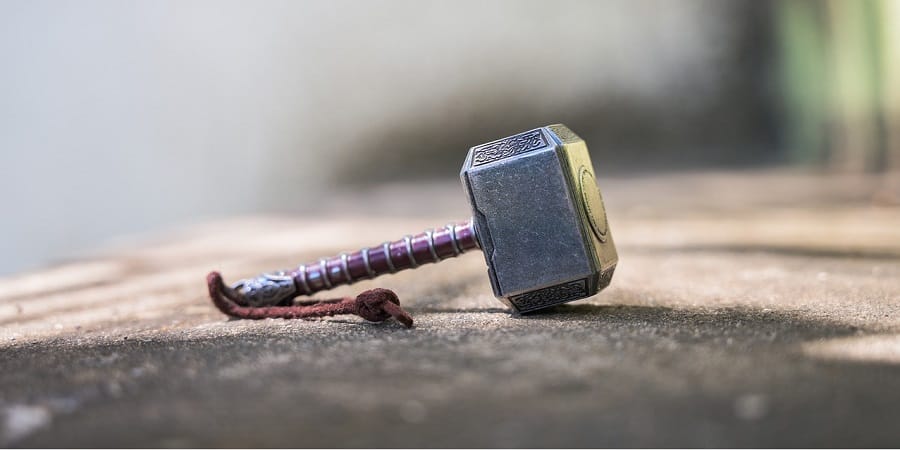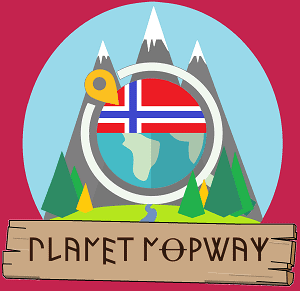Norse gods and goddesses have captured the imagination of so many who have encountered them since their origin in Scandinavia thousands of years ago. Mysterious, righteous, and mighty warriors, their world has permeated the globe with its influence.
Here we look at a strong sample of 15 of the most important and powerful Norse gods and goddesses, examining their role, importance, and family structure in the pantheon.
If that seems good to you, we can start with some of the most famous and influential before diving deeper into some of the lesser-known yet still fascinating deities that play a role in Norse mythology.

Odin
Odin, or the Allfather, was the ruler of the Aesir tribe of Norse gods. He was worshipped by both rulers and outcasts for his enigmatic personality, privileging wisdom and ecstasy.
After a battle, half of the slain warriors would be selected by Odin’s Valkyries to be taken to him in Valhalla.
His appearance was that of an older man with a flowing beard. He had given up one of his eyes for wisdom and relentlessly sought it in his tales, often adventuring far from Asgard, home of the gods.
He favored warriors who had great bloodlust in battle and considered this to be a sign of religious ecstasy for battle.
Thor
Thor is one of the most powerful Norse gods. He is considered the mighty defender of gods and goddesses wielding his hammer Mjolnir as he rode the skies in his chariot pulled by two goats.
As one of Odin’s most prominent sons, he was the most worshipped of all the Norse gods and was beloved by warriors and everyday people alike, including women.
According to the sagas, he has long red hair and a red beard. He is also described as one of the most straightforward gods who acted for the good, protecting both Asgard and Midgard (earth).
In the stories, he is often portrayed as slaying giants and fighting great monsters with his hammer. His portrayal in the ancient sagas has inspired characters in modern popular culture.
Most prominently he is the inspiration for the superhero Thor in the Marvel universe. Here he is portrayed by Australian actor Chris Hemsworth in several movies.
Loki
Loki is famous for being unclassifiable amongst the gods. He is a cunning trickster god who sometimes hurts the gods but at other times helps them in ways they would have never considered themselves.
The perpetual outsider, he belongs neither to the gods nor the giants. Nevertheless, Loki bore many children, including Hel, the goddess of death; Jörmungand, the colossal world serpent; and Fenrir, the wolf.
While not central within Norse mythology, they would each play essential roles as antagonists in the myths and sagas.
Despite not being a worshiped god, there is no other deity featured as often as Loki. The complexity of the character has inspired characters in popular culture.
Most prominently, Loki is also featured in the Marvel universe, where he is said to be the brother of Thor. He is featured in several movies and even got his own TV series where he is portrayed by British actor Tom Hiddleston.
Frigg
Frigg was the wife of Odin and the mother of Balder. She is often seen as a symbol of marriage, prophecy, clairvoyance, and motherhood, and dwells in the wetland halls of Fensalir.
She is the queen of the goddesses and is respected for her roles. However, she is rarely attested to in the myths and seems to play a similar role as Freyja, positing many scholars to believe they may be the same goddess.
Due to her role as the wife of Odin, she was a well-respected god which is emphasized by the fact that the English weekday name Friday (ultimately meaning ‘Frigg’s Day’) bears her name
Balder
Balder was the gleaming son of Odin and Frigg. He is known primarily for the story of his death, which is seen as the first in a chain of events that will ultimately lead to the destruction of the gods at Ragnarök.
According to the sagas He and his mother had a dream of his death. Because dreams were prophetic This depressed balder. Because of this, Frigg made every living thing on earth vow never to hurt Baldr, except mistletoe which was deemed to be too harmless.
Because of this, all the other gods would indulge in the activity of hurling objects at Baldr, which would bounce off without harming him.
When Loki hears of this, he makes a magical spear out of mistletoe which he then gives to Baldr’s brother, the blind god Höðr, who then inadvertently killed his brother with it.
Grief-stricken, Frigg sent the god Hermod to plead with Hel to release Baldr from the realm of the dead. She agrees only if all objects alive and dead would weep for him.
All did, except a giantess presumed to be the god Loki in disguise, who refused to mourn the slain god. Thus Baldr had to remain in the underworld, not to emerge until after Ragnarök.
Freyja and Freyr
Freyja is one of the most prominent goddesses of Norse mythology. Freyja rules over her heavenly field, Fólkvangr, where she receives half of those who die in battle. The other half goes to the god Odin’s hall, Valhalla.
Within Fólkvangr lies her hall, Sessrúmnir. Freyja assists other deities by allowing them to use her feathered cloak, is invoked in matters of fertility and love, and is frequently sought after by powerful jötnar who wish to make her their wife
Her husband is an obscure god named Odr, who many scholars posit is Odin. This places her role alongside Frigg as very similar, if not identical.
She is famous for being the goddess of love, fertility, and beauty. In addition, she practices the Seidr, a form of fate magic that is considered feminine and was one of the most widely worshiped gods among the Vikings.
Freyr is Freyja’s twin brother and widely attested god in Norse mythology, associated with sacral kingship, virility, peace and prosperity, sunshine and fair weather, and praised for a good harvest.
Along with His sister Freyja and his father Njord, He was one of the Vanir gods who went to live among the Æsir as part of the peace agreement after the Æsir-Vanir war.
He was given control of Álfheimr, the realm of the Elves, as a teething present. He rides the shining dwarf-made boar called Gullinbursti and possesses the ship Skíðblaðnir which always has a favorable breeze
Hel
Hel is the goddess of the underworld located in the realm of Niflheim. Here she receives the portion of humans and gods that die from sickness and old age.
She is the daughter of Loki and sister of Fenrir and Jörmungand, placing her in the disreputable company.
There are relatively few tales of her, her primary role being the greedy and harsh keeper of the dead who were not slain in battle. She plays a prominent role in keeping Balder from returning to the gods after his death.
Tyr
Tyr is the third god of war in the Norse pantheon, alongside Odin and Thor. His most important role was upholding the law and justice.
Whereas both Odin and Thor sought to fight and often kill for their own sakes and to eliminate enemies, Tyr was concerned with the formalities of war—especially treaties—and also, appropriately, of justice.
His most famous story is the defeat of Fenrir, where he gives up his hand to chain the beast that would have devoured the world.
Tyr came to be identified by the Romans with their own Mars, hence dies Marti (Mars’ Day) came to be rendered Týsdagr which we know as Tuesday today.
Heimdall
Heimdall is the guardian of the rainbow bridge, Bifrost, that allows passage in and out of Asgard. He doesn’t sleep and watches the entrance constantly, ever vigilant.
If there’s danger, he sounds the Gjallarhorn. Ragnarok is said to be signaled by the Gjallarhorn.
Njord
Njord was a prominent god of the Vanir tribe of deities, part of the giant war between the Aesir and Vanir before they merged.
Njord marries Skadi at one point, but their different climates and homes don’t mix well, and they eventually part ways.
He’s associated with wealth, fertility, and seafaring, with a common Viking saying being “to be as rich as Njord.”
Vidar
Vidar only really appears after Ragnarok and is considered to be one of the younger generations of gods who will inherit the world after most of the old gods die.
Vidar is one of Odin’s sons and is said to be the second strongest god after Thor, but only has a few references to him.
Vali
Vali is a son of Odin and brother to Balder. When Balder died, he avenged him against his killer. Like Vidar, he is one of the younger generation meant to succeed the gods after Ragnarok.
Beyond this, he remains a relatively obscure figure in Norse mythology, only having been one day old at the time of his vengeance for Balder.
Bragi
Bragi is an old and wise bard of Norse mythology. He is frequently found in Valhalla, reciting the names of the dead in Valhalla and welcoming newcomers.
However, Bragi’s surprising history is that of a real Viking, the ninth-century bard Bragi Boddason.
His poems were considered so beautiful and artistic the people believed he must have been appointed as Odin’s poet in the afterlife.
Idunn
Idunn is a Norse goddess who features sporadically throughout mythology. She is the owner and provider of the fruit that gives immortality.
The gods and goddesses would not be able to keep their immortality without it, and therefore she plays a vital role in the functioning of Asgard. In addition, she is the wife of Bragi, Odin’s court poet.
Forseti
Forseti is an obscure Norse god. He is the son of Baldur and Baldur’s wife, Nanna. He is said to live in a hall of silver and gold called Glitnir.
In old Norse, Forseti means the “presiding one”, and he is considered to be the Norse god of justice and reconciliation. It is said that Forseti presided over the best of courts and that all those who come before him leave reconciled.
This separates him from many other gods in the Norse Pantheon, who frequently get into arguments and conflicts. Besides his name and role, we have little information about his importance in Norse mythology.
